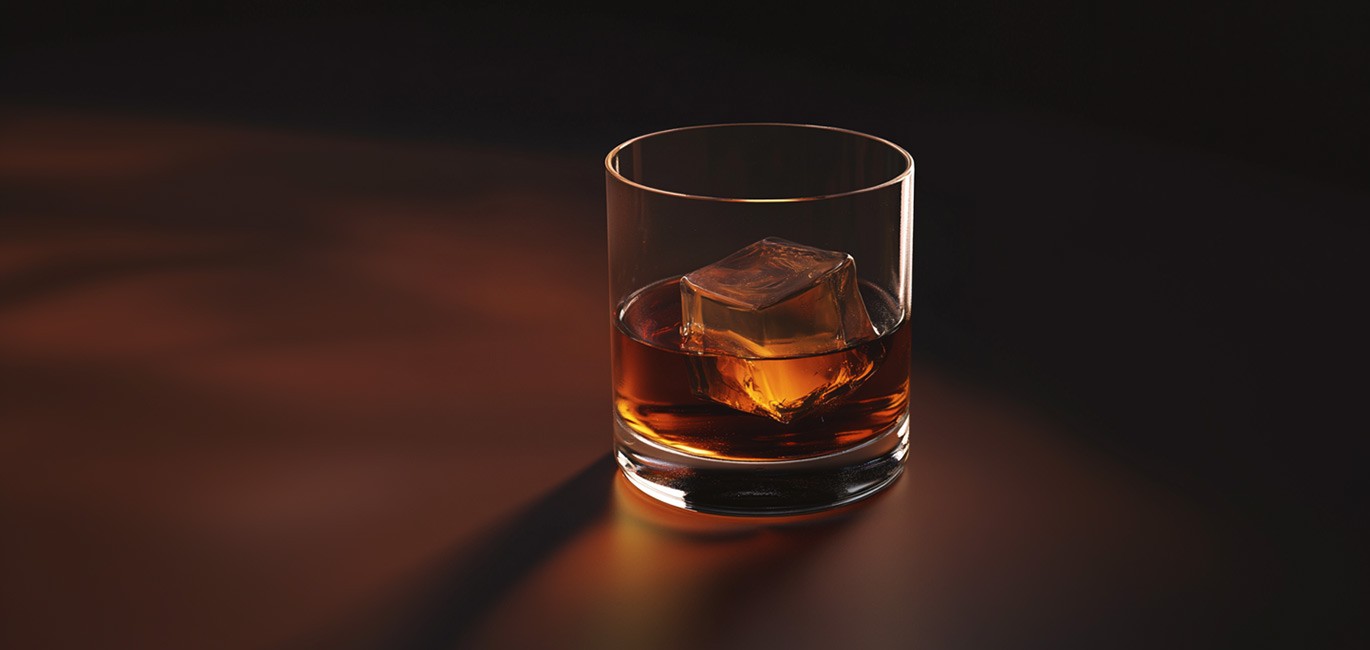Key Takeaways
Distinct Origins and Ingredients: The primary differences between Bourbon, Scotch, Whisky, and Whiskey lie in their geographical origins and main ingredients.
Varied Flavor Profiles: Each spirit offers a unique tasting experience.
Specific Production Processes: The spirits differ in their production methods, which contribute to their distinct characteristics.
Cultural and Regional Significance: Each of these spirits reflects the cultural heritage and traditional practices of their respective regions.
What is Whiskey?
Whiskey with an 'e' refers to the spirits primarily produced in Ireland and the United States. Irish Whiskey is famed for its smoothness and approachable character, often triple-distilled for extra purity and smoothness. American Whiskey encompasses a range of styles, including Bourbon and Tennessee Whiskey, each with its own distinct characteristics influenced by ingredients, production methods, and aging processes.
What qualifies as Whiskey?
Geographical Indications: Like its 'e'-less counterpart, whiskey must adhere to the production standards of its country of origin. Irish Whiskey, for example, must be produced in Ireland.
Grain Composition: American Whiskey often includes corn (especially in Bourbon), rye, and wheat, while Irish Whiskey typically features barley.
Aging Requirements: In Ireland, whiskey must be aged for at least three years in wooden barrels. In the U.S., the aging requirements vary depending on the type of whiskey.
Distillation Process: Irish Whiskey is often triple-distilled, making it smoother. American whiskeys have diverse distillation processes, depending on the style.
Flavor Profile: Irish Whiskey is generally known for its smoothness and lightness, while American whiskeys can range from the sweet, full-bodied profile of Bourbon to the smooth, charcoal-filtered Tennessee Whiskey.
What is Bourbon Whiskey?
Bourbon, the quintessentially American spirit, is synonymous with the southern United States. Bourbon is a type of whiskey but distinguishes itself through a specific set of production rules. Primarily from corn (51%), Bourbon has a rich, sweet flavor, making it a popular choice for sipping neat and in cocktails.
What qualifies as Bourbon Whiskey?
Produced in the United States: While strongly associated with Kentucky, Bourbon can be produced anywhere in the U.S.
Corn-Based Mash Bill: At least 51 % of the mash bill must be corn, lending Bourbon its characteristic sweetness.
Aged in New Charred Oak Barrels: This imparts a deep amber color and rich, woody flavors.
Distilled to No More Than 160 Proof: Ensures the preservation of the natural grain flavors.
Bottled at 80 Proof or More: Provides a robust flavor profile suitable for various palates.
What is Scotch Whisky?
Scotch is made and aged in Scotland (this is part of its key requirements). It is renowned worldwide for its complex flavor profile, which ranges from smooth and fruity to rich and peaty, depending on the region of production and the distillation process.
What qualifies as Scotch Whisky?
Produced and Aged in Scotland: Authenticity and adherence to tradition are key.
Made from Malted Barley: Though other grains can be used, malted barley is the primary ingredient.
Aged for a Minimum of Three Years: In oak barrels, which contribute to its distinct flavor.
Minimum 40% Alcohol by Volume: Ensuring a rich and robust flavor profile.
Distinct Regional Styles: From the peaty, smoky whiskies of Islay to the light, floral notes of the Highlands.
What is Whisky?
Whisky, without the 'e', primarily refers to spirits distilled in Japan, Scotland, South Africa and Canada. Each country brings its own traditions and regulations to whisky production, resulting in a diverse range of flavors and styles. Scottish Whisky, or 'Scotch,' is world-renowned for its complex flavor profiles, which can range from light and floral to rich and peaty. Canadian Whisky is known for its smoothness and often lighter character. Japanese Whisky, a relatively newer player, has gained international acclaim for its quality and innovation, often drawing inspiration from the Scottish methods.
What qualifies as Whisky?
Region-Specific Production: Each country has its own set of laws governing whisky production. For instance, Scotch must be made in Scotland.
Ingredients: Typically made from malted barley, but other grains can be used. Canadian Whisky often incorporates rye, contributing to its distinct flavor.
Aging Process: Whisky must be aged in wooden barrels. In Scotland, it must be aged for at least three years.
Alcohol Content: The required minimum alcohol content varies by country but is typically around 40% ABV.
Distinct Styles: Each country's whisky has unique characteristics. For example, Scotch is known for its regional diversity, from the peaty whiskies of Islay to the lighter styles of the Speyside region.
Similarities and differences compared: bourbon vs scotch vs whisky vs whiskey
Understanding the subtle and not-so-subtle differences between these spirits is key to appreciating their unique qualities. This table highlights the primary differences, but each category encompasses a range of flavors and styles, reflecting the diversity within each type of spirit.
Origin
Mash Bill
Aging
Min. Aging Period
Flavor Profile
Bourbon
United States
51% corn, rye/wheat, malted barley
New charred oak barrels
Bourbon: none; Straight: 2 years
Sweet, full-bodied
Scotch
Scotland
Malted barley; grain Scotch: mix grains
Oak barrels
3 years
Smooth to peaty, region-dependent
Whisky
Various (e.g., Japan, Canada)
Varies; often malted barley, rye/corn
Oak barrels
Varies by type and country
Diverse, by country/style
Whiskey
United States and Ireland
Malt/unmalted barley; specific for US
Oak barrels
Generally 3 years; varies in US
Smooth, mellow; varies in US
Famous Brands: Bourbon, Scotch, Whisky, Whiskey
Exploring the world of these spirits would be incomplete without mentioning some of the most famous brands that have become synonymous with quality and tradition in each category.
Famous Bourbon Brands
Maker's Mark: Known for its distinctive red wax seal, this brand uses red winter wheat rather than rye, resulting in a smoother bourbon.
Jim Beam: One of the world's best-selling bourbon brands, it offers a classic taste that's rich, versatile, and steeped in American heritage.
Buffalo Trace: With a history dating back over two centuries, this brand is celebrated for its rich, complex flavors and deep amber color.
Famous Scotch Brands
Glenfiddich: One of the best-selling single malt scotches worldwide, known for its pear and apple notes.
Lagavulin: Famous for its smoky and peaty flavor, it's a staple for lovers of the robust Islay style.
Macallan: Highly regarded for its rich color and complexity, Macallan is synonymous with luxury in the world of Scotch.
Famous Whisky/Whiskey Brands
Canadian Club (Whisky): A popular choice in Canada, known for its smoothness and is often used in mixed drinks or cocktails.
Jameson (Whiskey): An Irish favorite, Jameson is renowned for its triple-distilled smoothness and balance.
Sipping Preferences: Whiskey vs Bourbon vs Scotch vs Whisky
The choice between these spirits often boils down to personal preference and the occasion. Bourbon, with its sweetness, often appeals to those who enjoy richer, more robust flavors.
Scotch enthusiasts tend to appreciate the depth and variety, from smooth to smoky.
Whisky and whiskey lovers often seek a balance, enjoying the subtle nuances that different grains and aging processes can bring.
Tasting them side by side is an excellent way to understand and appreciate their differences, and it also allows one to discover personal preferences. Whether neat, with a splash of water, or on the rocks, each spirit offers a unique journey through flavor and tradition.
Final Thoughts on Bourbon, Scotch, Whisky, and Whiskey
Bourbon, Scotch, Whisky, and Whiskey each stand as a testament to the rich tapestry of distilled spirits. Their distinct production methods, histories, and flavor profiles not only offer a wide range of tasting experiences but also reflect the cultural heritage of their respective regions. Whether one is a connoisseur or a casual enthusiast, the journey through the world of these spirits is one of continuous discovery and enjoyment.
Frequently Asked Questions the difference between Scotch, Bourbon, Whiskey and Whisky
Share on social media:







